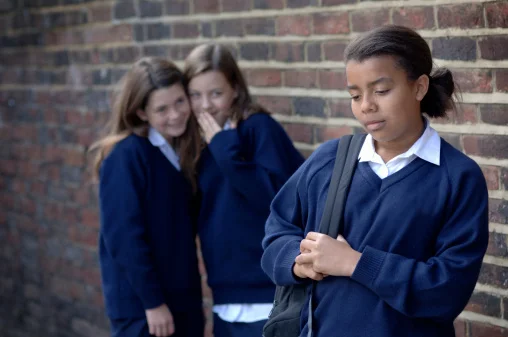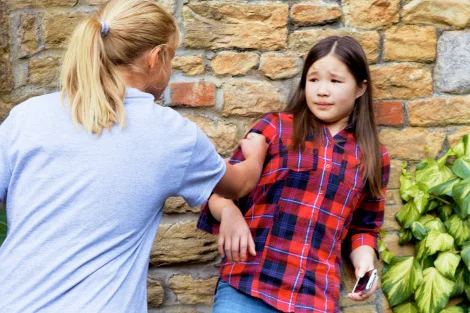+1 845 259 2974 (11 a.m to 7 p.m CST)
The Correct Anti-Bullying Advices You Should be Giving your Teens

The anti bullying flyer distributed to children by a public school in Lincoln, Nebraska, quite understandably resulted in the school facing a severe backlash from parents. “Do not verbally defend yourself”, “Do not tell on bullies” and “Don’t be a sore loser” are indeed some of the most ineffective ways to deal with the problem. These are definitely not the things that you would want to be telling your kids when teaching them bully-proofing skills. To help them survive and escape bullying at school, it’s imperative that you guide them correctly.
How to Handle Provocation
Anti bullying campaigns often advice parents to encourage their kids not to react to bullies as getting a reaction from their victims is precisely what the latter are looking for. This may be true, but only to an extent. Yes it can strip bullies of their motivation, but a response is not what all bullies are searching for. Their intent may simply be to humiliate the victim in public and gain social superiority at their expense. Your child may fare better in such situations if they choose to respond to the bully, though in a cool and calm manner. Peacefully confronting the bully may prove to be far more effective than simply ignoring the bully’s attacks.
To Attack or Not To Attack
Refraining from punching or kicking the bully is a golden rule when it comes to dealing with a bully effectively. However, an exception needs to be made when the bullying is of physical nature. You need to tell your teen that it’s okay for them to defend themselves against physical abuse. However, advise them to use minimum force when forcing the bully into submission. Tell them to refrain from turning into the aggressor or beating the bully for pleasure or out of anger.
A Verbal Affair
“Sticks and stones may break my bones, but words will never harm me”, right? Wrong. The impact of hurtful words can be just as severe, if not more, as the most brutal punch to the face. Don’t teach your kids to ignore what the bully hurls at them. Instead, encourage them to follow Gracie Family’s Three T-steps i.e., Talk, Tell, Tackle. Advise your child to try putting an end to bullying by confronting the bully and telling them to stop. If that doesn’t help, they should take the matter to a responsible adult, be it their parents, teacher, school administrator, etc. If that doesn’t help either, they may go offensive by challenging the bully mentally. This may put the latter on the back-foot as they’d realize what may be coming next.
Asking for Help is Okay
If your child feels that telling on bullies is a sign of weakness, help them overcome this incorrect notion. Tell them that it’s not only okay, but wise to ask for help when dealing with a serious problem. Silently suffering the torment or confronting the bullies on their own may lead to undesirable results. Assure them of your unconditional support in case they ever feel they need it.
While it may not be possible to completely bully-proof your child, you can at least prepare them to handle the situation well by equipping them with the right skills. Giving them wrong or poorly thought-out advices has the potential to complicate things even further for them and take a toll on their development.
























